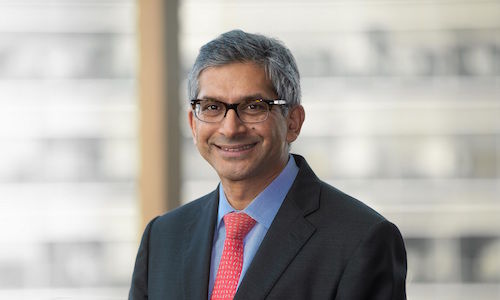BoS: Growing «Non-Traditional» Insti Demand
Asia’s emergence of the so-called «non-traditional» client segment in private banking is driving more demand for discretionary mandates, Bank of Singapore CIO Rajeev de Mello told finews.asia, due to ample excess cash coupled with lacking in-house expertise and strict internal guidelines.
Bank of Singapore has seen strong growth from its discretionary portfolio management (DPM) business, registering around 40 percent growth in the number of clients over the last two years. A notably growing trend amongst this pool of clients is the emergence of «non-traditional institutional clients», a segment that is rapidly gaining prominence in the region.
«Non-traditional institutional clients refer to organizations where wealth management is not part of their daily operations,» explained Bank of Singapore’s Rajeev De Mello in a conversation with finews.asia, highlighting cash-rich, time-poor entities, such as membership clubs or charity foundations.
Not Investment Managers
A key factor driving demand is that such entities are not investment managers by nature and De Mello notes that excess cash positions are typically overseen by finance teams and not investment specialists.
«In addition, they may have their respective internal investment guidelines which limit what they can or cannot invest in, and such guidelines may not be accommodated by all investment managers,» he said. «Hence they are turning to DPM teams in private banks.»
Cash management aside, private banks are also able to support such clients’ demanding reporting needs to their boards which are made all the more complex when strict investment guidelines are in place, such as various ESG-related restrictions.
More Defense
Broad DPM demand at Bank of Singapore is trending towards a more defensive approach in recent years with most selecting either pure fixed income or multi-asset strategies with higher allocations to fixed income. Recent demand for pure fixed income mandate is further accelerating with the greatest interest in portfolios that blend both investment grade and high yield securities, which could generate an estimated 4.5 percent yield per annum.
Bank of Singapore’s current house view echoes clients’ defensive behavior especially given an ongoing U.S.-China trade war that it expects could further hit the global economy.
«Our concern is that these impending 10 percent US tariffs on the remaining $300 billion of Chinese imports are expected to exert far more economic harm than previous rounds,» De Mello said, adding that the post-rate cut trade escalation caught markets by surprise. «Even though the increase in tariffs is spread between September 1 and December 15, the impact on business confidence will be significant.»
The bank said the security selection is critical in such a volatile environment and has reduced risk by downgrading its equity position to underweight and neutralizing its fixed income position.


























